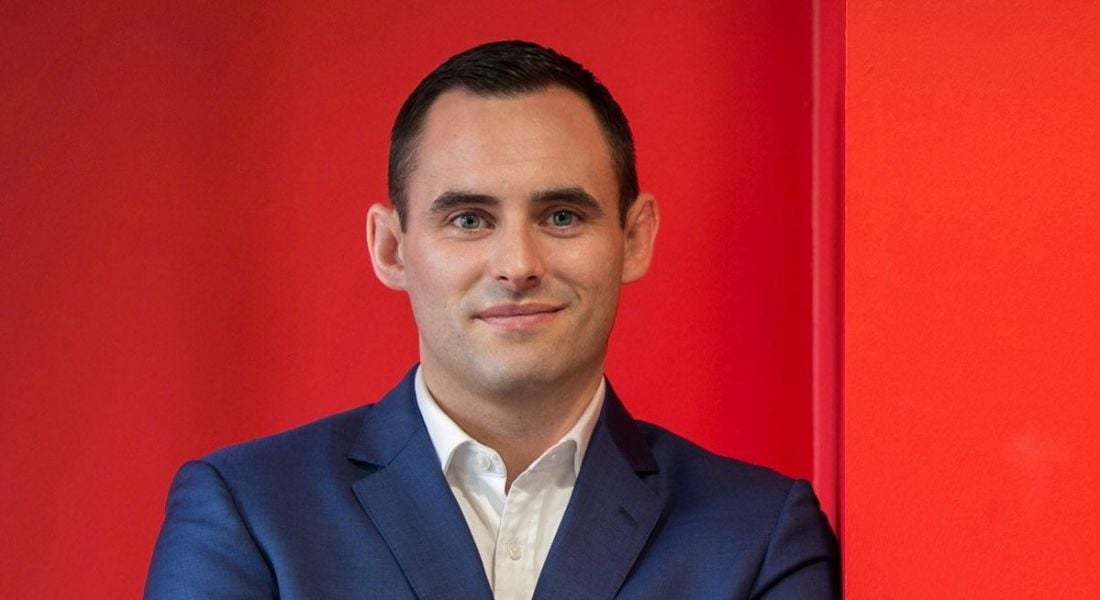David Phelan, managing partner of Accreate, examines the problem of attracting talent within the life sciences sector in Ireland.
Last year, we decided to reach out to more than 350 leaders in Ireland’s life sciences sector. We wanted to discover some of the challenges facing the sector here. We also hoped to glean their thoughts on how these challenges could be overcome.
Our life sciences white paper was the first in the Accreate Connects series of insight reports. The series is designed to leverage our expertise and network in our specialism of life sciences, financial services, consumer and technology. Each report provides front-line intelligence about the sector and will have unique insights and perspectives.
Ireland’s life sciences industry was a great starting point. It employs more than 50,000 people across all regions of the country.
We are also home to six of the top seven diagnostics companies, and eight of the world’s 10 largest medical device companies. And the sector’s contribution is significant – it exports more than €45bn each year.
So, what did these leaders in life sciences tell us?
Some of the report’s key findings are:
- 84pc of life science leaders said attracting and retaining talent were the ‘most challenging’ or ‘challenging’ issues affecting their businesses.
- More than 50pc identified Ireland’s personal income tax regime and regulatory environment as the next ‘most challenging’ or ‘challenging’ issues facing the sector.
- 82pc identified personal taxation reform as being the ‘most important’ or ‘important’ measure that would enhance their ability to attract and retain talent, boosting economic growth.
- There was a clear preference for the broadening of the highest marginal tax rate. Most felt that the highest rate of tax should kick in at a much higher level of income and should be capped at a 50pc effective rate, which is still less competitive than our UK counterparts.
- R&D credits came in as a close second in terms of tax reformation to facilitate growth.
- 98pc of respondents see Ireland as having a favourable corporate tax regime when compared to other EU countries, with the other 2pc seeing it as neutral in comparison.
- Unfortunately, this is in stark contrast to how our personal tax regime compares, with 90pc believing that Ireland is a less favourable location than our EU counterparts.
- 79pc of respondents see Ireland as being of significant importance to the future of their businesses.
Attracting and retaining talent were seen to be the ‘most challenging’ or ‘challenging’ issues affecting their businesses to date. Our personal income tax regime and our regulatory environment were the next ‘most challenging’ or ‘challenging’ issues.
However, the difficulties with attracting talent and personal income tax are not mutually exclusive. It’s clear that our tax measures to attract companies to relocate to Ireland do not at all match our ability to attract overseas talent. Well over three-quarters of leaders say personal tax reform would facilitate growth in the sector as it would enhance their ability to attract and retain talent.
The broadening of the highest marginal tax rate would make Ireland a more competitive location for highly skilled professionals to seek employment.
R&D credits came in as a close second in terms of tax reformation to facilitate growth. Many feel that there is a need to include a broader range of activities under the scheme, which is seen as less valuable to pharma and biotech businesses with higher-value research and longer timelines to commercialisation.
Respondents felt that there should also be more of an incentive for IP developed in Ireland, which then goes to production here, too.
Corporation tax also received a mention, as 14pc felt that reformation there would provide growth. This is due to the perceived threat from the Trump administration’s drive to reduce the corporation tax rate in the US.
Many felt that if we made a pre-emptive reduction to 10pc, this would put any US reformation out of reach of affecting inward investment to Ireland, and reduce economic uncertainty around investing here in the near-medium term.
If personal taxation, corporation tax and R&D tax credits were reformed, 84pc believe their business would both increase investment in Ireland and increase headcount. More than 40pc also felt that they would see a growth in revenue, should these measures be introduced.
The income tax and USC changes announced in October’s budget are welcome. They will go some way to addressing the big issue around Ireland’s perceived unfavourable personal tax regime.
Overall, the sentiment for the businesses currently situated in Ireland is strong. Almost 80pc of respondents see Ireland as being of significant importance to the future of their businesses, which is a considerable endorsement of the value that Ireland brings to the many multinational businesses here.
I’m pleased to say that in the second half of 2017, there has been a surge in Irish based C-suite-level career opportunities in areas including life sciences.
This is in part due to the growth of the domestic economy and indigenous companies, but also due to the strong FDI pipeline, helped in Q4 by an uptake in Brexit-related activity.
Undoubtedly, challenges remain for Ireland’s important life sciences sector. However, we are confident that the sector is on a positive footing and well placed to continue to grow in the year ahead.
By David Phelan
David Phelan is managing partner at Accreate with additional specific responsibility for leading the life sciences practice. David joined Accreate in 2015 to build the life sciences practice, which has since become one of the cornerstones of the business.




